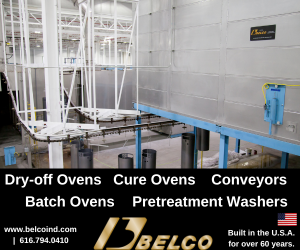Sulfate Nickel & Chloride Revisited
Is it necessary to have chloride in our sulfamate nickel plating bath?
I responded to the following question in the November issue of PRODUCTS FINISHING. One of our readers, Warren Smith, sent an e-mail with some information that I failed to mention. The original question is reprinted below along with the additional comments. Comments are always
appreciated.
Q. Is it necessary to have chloride in our sulfamate nickel plating bath? M.M.
A. The direct answer is no. Chloride ion is added to help with the dissolution of the anodes (anode efficiency) but it is not essential. If your sulfamate plating bath does contain chloride, be aware that as the chloride concentration increases the tensile strength of the nickel deposit will increase. This will increase the stress in the deposit that can be a cause of the deposit cracking.
Additional Comment:
It is not necessary to have chlorides in the bath if the plater is using a sulfur-activated anode material such as Inco S Rounds or S Pellets, because this type of anode will dissolve at 100% anode efficiency with or without chloride addition. However, if using a non-activated anode material (nickel squares or R Rounds, for example), it is necessary to add chloride to assist with the anode dissolution.
Related Content
-
Successful South African Plater Beating the Odds
Remaining focused on quality and reliability, Team Plating Works stays profitable in a volatile and challenging economy.
-
Possibilities From Electroplating 3D Printed Plastic Parts
Adding layers of nickel or copper to 3D printed polymer can impart desired properties such as electrical conductivity, EMI shielding, abrasion resistance and improved strength — approaching and even exceeding 3D printed metal, according to RePliForm.
-
Innovation in Plating on Plastic
Plating on advanced plastics solution offers improved adhesion, temperature resistance and cost savings.
















